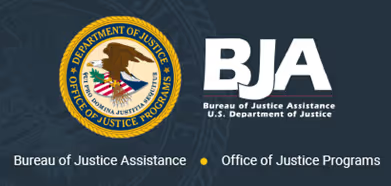Grants and Funding Assistance
A number of resources exist to assist facilities with covering the cost of upgrading physical security, like adding ballistic-resistant protection.
Nonprofit Security Grant Program
The Nonprofit Security Grant Program (NSGP) is administered by FEMA and the Department of Homeland Security. It offers financial assistance to cover the cost of physical security improvements at nonprofit entities identified as at-risk targets for attacks (whether it be from organized terror groups or lone perpetrator extremeists).
- Candidates must be non-profit, tax-exempt 501(c)(3) organizations. This includes, but is not limited to:
- Places of worship (churches, synagogues, mosques...)
- Private schools, both secular and non-secular
- Community/social/crisis centers
- Medical facilities
- Museums and event venues
- The program will cover up to $200,000 of security improvement costs per site. Organizations are allowed to apply for up to three sites ($600,000 total).
- Here is a synopsis of links that will help you navigate the wide array of information the program has available:
- Find more info at grant.gov: Grants.gov NSGP
- The main web page for the program: NSGP Home Page
- Find the contact information for your state NSGP representative, they will have details for the application process and the due date for the application: State Rep
- An easy-to-understand PowerPoint summary: NSGP Summary Slide Deck
- A comprehensive manual describing the 2024 NSGP and other programs: FEMA manual
- A step-by-step guide for the applications process: Step-By-Step Process

Community Oriented Policing Services & School Violence Prevention Program
Community Oriented Policing Services (COPS) is administered by the Department of Justice. It's a federal initiative aimed at enhancing public safety by providing funding, resources, and technical assistance to support initiatives such as community policing, crime prevention, and physical security improvements, all done under a program called School Violence Prevention Program (SVPP).
- May be used for training, emergency notification technology, and to invest in security hardware, such as detection and deterrent equipment or physical security materials for windows and doors.
- Funds are limited to covering 75% of the actual costs (although some ability to get waivers for the remaining 25% do exist) with a cap of $500k over three years.
- Eligibility includes:
- Public schools and public charter schools
- Public and state-controlled institutions of higher education
- Schools without a 501(c)(3) status
- Ineligible facilities include nonprofit organizations that operate schools, private schools, or private charter schools.
- Step 1: Submit an application at Grants.gov., deadline: June 18, 2025, at 4:59 PM ET
Step 2: Submit the full application including attachments through JustGrants.gov, deadline: June 26, at 4:59 PM ET - Detailed information can be found here: FY25 School Violence Prevention Program
- SVPP Program description slides: FY25 SVPP Program

Homeland Security Grant Program
Managed by the U.S. Department of Homeland Security (DHS), the Homeland Security Grant Program (HSGP) is designed to enhance the ability of state, local, tribal, and territorial governments to prepare for terrorist attacks, which includes domestic terrorism threats (such as groups that actively threaten their fellow US citizens with violence). The program consists of three elements:
- State Homeland Security Program (SHSP): supports all states and territories, funding a wide range of security initiatives to build capabilities like emergency planning, training, and equipment purchases that address risks identified in state homeland security strategies.
- Urban Area Security Initiative (UASI): focuses on high-threat, high-density urban areas and provides them with resources to enhance threat preparedness.
- Operation Stonegarden (OPSG): assists law enforcement agencies in states bordering Canada and Mexico by funding a variety of activities and investments related to border security.
The Urban Areas Security Initiative (UASI) can cover the costs of physical security investments (such as protection for windows and doors), but this is contingent on the local urban area administrators defining those investments as eligible, which may vary from area to area.
- UASI funds are allocated based on DHS/FEMA's risk methodology, with eligibility determined through analysis of the relative risk of terrorism faced by the top at-risk metropolitan areas in the US. Forty-one cities (and to some extent, their greater metropolitan areas) have qualified for the listing and are eligible for funding. A complete list of the currently eligible cities can be found here.
- Program details are found here
- In FY2024, $535M was allocated. The FY2025 allocation is delayed due to congressional budget debates, but funding has been committed to in the passage of The One Big Beautiful Bill, so 2025 availability is forthcoming.
- For more information, contact ask-gmd@fema.dhs.gov

Student, Teachers, and Officers Preventing School Violence Program
The Student, Teachers, and Officers Preventing (STOP) School Violence Program is administered by the Bureau of Justice Assistance under the direction of the U.S. Department of Justice. The program benefits K-12 schools, both public and private, and focuses on covering the costs of training and danger reporting tools.
- Excludes target hardening expenses (such as bullet-resistant materials and window security films), but can be used to implement training, develop school threat assessment teams and/or intervention teams to identify violence risks, introduce technologies like anonymous reporting tools, or apply other school safety strategies that assist in preventing violence.
- Eligibility includes:
- Public and state-controlled institutions of higher education
- Private schools with or without a 501(c)(3) status
- Both public and private charter schools
- Step 1: Submit an application at Grants.gov., deadline: Oct 27, 2025, at 4:59 PM ET
Step 2: Submit the full application including attachments through JustGrants.gov, deadline: Nov 3, at 4:59 PM ET - Detailed information can be found here: FY25 STOP Program
- Program description PDF: FY25 STOP Program

State and Local Cybersecurity Grant Program (SLCGP)
Issued by FEMA and administered through the Cybersecurity and Infrastructure Security Agency (CISA). The program funding can be used for training, planning activities, and purchasing equipment and software directly related to implementing a cybersecurity plan.
- This is a cost-share program (the grant will only cover 60-80%of the expense, depending on the entity.
- Available to state, local, and territorial governments and agencies, including public school districts and institutions (elementary, secondary, and higher education), including charter schools that are connected to state or local government.
- Program details are found here
- FY2024 application process is open until 12/3/24
2025 availability is forthcoming, but the submission period is noted as occurring annually at that same date. - For more information, contact SLCGPinfo@cisa.dhs.gov

Guides to Federal and State Funding for
Public and Private Schools
Many government funding opportunities are available to help schools upgrade their security and safety equipment, provide training, and improve physical security elements. Below is a state-by-state list of such programs, separated by federal vs. state grants and noting those available only for private or public schools.
- California
- Connecticut
- Delaware
- Florida
- Georgia
- Hawaii
- Illinois
- Maine
- Maryland
- Massachusetts
- Michigan
- Minnesota
- Montana
- Nebraska
- New Hampshire
- New Jersey
- New York
- North Carolina
- Ohio
- Pennsylvania
- Rhode Island
- South Carolina
- Tennessee
- Texas
- Utah
- Vermont
- Virginia
- Washington DC
- Washington State
- West Virginia
Check back often, new states are being added each week of 2025
Or contact sales@ballistic-barrier.com
Winning the Grant Game- Essential Advice for Federal and State Funding
A successful grant application hinges on meticulous detail. Aligning your proposal with the specific guidelines of state or federal programs is non-negotiable. The narrative should clearly articulate how the proposed security measures will directly enhance safety, supported by data, feasibility studies, and expected outcomes.
The Value of Professional Grant Services: engaging with experienced grant application services can significantly tilt the odds in your favor. These professionals are adept at:
○ Deciphering the cryptic language of grant applications.
○ Tailoring proposals to meet the unique criteria of each funding opportunity.
○ Leveraging past successes, with many services boasting success rates well over 90% due to their deep understanding of the grant ecosystem.
Security Consultants: In the pursuit of school safety grants, one critical step can be the inclusion of expert analysis from security professionals. Here's how to approach this:
○ Professional Assessment- Many grant programs mandate a detailed security assessment to guide investment decisions. This expert guidance is invaluable in identifying the most effective measures to enhance safety, prioritizing investments based on risk analysis, and compliance with safety standards.
○ Strategic Recommendations- A security consultant provides not just an evaluation but strategic recommendations tailored to the unique needs of each educational institution. This includes physical security upgrades, training programs, and emergency response protocols
○ Cost-Effective Solutions- Through their expertise, consultants can suggest cost-effective solutions that maximize the impact of grant funds, ensuring that every dollar spent contributes to a safer environment.
○ Local Law Enforcement Collaboration- Some municipalities and states offer complimentary consultation services through local law enforcement agencies. This collaboration not only reduces costs but also fosters community engagement in school safety efforts, leveraging local knowledge and resources.
A successful grant application hinges on meticulous detail. Aligning your proposal with the specific guidelines of state or federal programs is non-negotiable. The narrative should clearly articulate how the proposed security measures will directly enhance safety, supported by data, feasibility studies, and expected outcomes.
Need Help with the Applications?
If you are new to the grant application process, sorting through the paperwork can be intimidating.
Or may simply not have the time to devote to completing the application with the proper fidelity.
If either is the case, there are resources that can assist you.
- Contact sales@ballistic-barrier.com or call us at (833) 285-5380
- Contact one of our recommended grant-assistance partners below...
When contacting any professional grant services, BBP recommends:
- Gain a clear understanding of the fees and the scope of effort included at that price.
- Inquire about the firm's success rate for the exact grant of interest.
- Ask about guarantees. If an application is turned down, some firms offer reapplication the following year at no or reduced costs.
Some things to keep in mind:
- There are many grant writers offering assistance; these names are based on feedback from our customers who have had positive results with these services.
- BBP cannot be involved with the application to avoid a conflict of interest.
- These recommendations free from any obligation to use BBP's products.
- Seeking reimbursement for the grant writer's fees is rarely allowed.

Christensen Consulting
Certified grant professional with a long tenure in the field of grants writing.
- Elizabeth Christensen, MPA, GPC
- Bio: linkedin.com/in/christensene/
- Direct : (858) 442-6519
- Email GrantSuccessx10@gmail.com

EM Designs (EMD)
An expert in the grant application field, especially when it comes to the federal grants such as the NSGP or SVPP. Offers application assistance as well as grant management services.
- 95% grant acceptance success rate
- Find out how EMD can help you: EMD Grants Applications
- Self-educate on the application process: EMD Grant Education
- Direct : (201) 887-1410
- Email lonnie@emdnyc.com

GrantWave Consulting
Empowering schools and nonprofits to secure capital for safer, smarter, and more sustainable operations.
- Find out how GrantWave can help you: grantwave.org
- Direct : (206) 816-4447
- Email skrager@grantwave.org

Windworth Grants
Dedicated to helping non-profit organizations obtain grant funding and thereby support their efforts to improve the lives of people in areas such as community health, environmental conservation, and education.
- Find out how EMD can help you: windworthgrants.com
- Direct : (423) 444-9294
- Email bruce.prezzavento@windworthgrants.com




